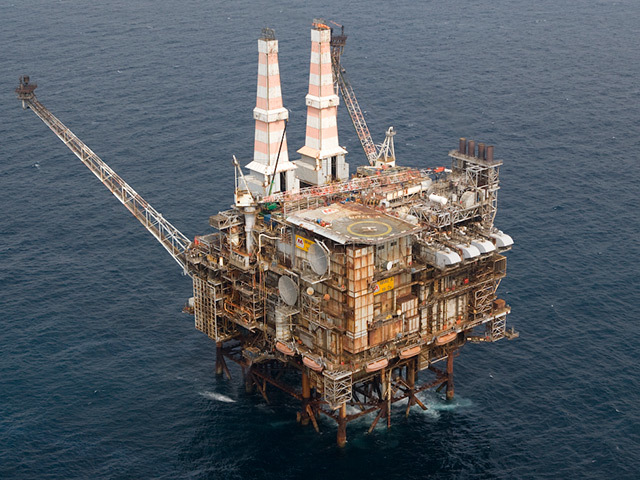
Marathon Oil insisted last night it had still not submitted any plans for decommissioning one of the North Sea’s oldest producing fields to the UK Government.
The company moved to clarify the situation concerning Brae, about 170 miles north-east of Aberdeen, after a report said Houston-based Marathon had already passed its decommissioning plans to the Department of Energy and Climate Change (Decc).
It was also reported that a Boxing Day gas blast on Brae Alpha and other hydrocarbon leaks on ageing North Sea platforms prompted Marathon to “accelerate” a permanent shutdown of the key field and associated infrastructure.
Taking Brae out of action so soon could jeopardise production from as many as 13 other oilfields which rely on the asset and its pipelines to export their own output.
But a spokeswoman for Marathon said the process of decommissioning Brae, once started, would take up to 20 years to complete.
The company started planning for a permanent shutdown several years ago and posted information on plans to eventually decommission the field on its website last May.
Its spokeswoman was unable to say when these plans would be formally submitted to Decc, and highlighted an earnings release on February 17 in which Marathon said full production from Brae Alpha – where output has been hit by the Boxing Day pipeline failure – was expected during the second quarter of 2016.
“Marathon Oil is committed to clear and open communication throughout the process,” she said, adding: “Programmes are being developed in accordance with relevant legislation and will be based on assessments of the safety, technical, environmental, socioeconomic and financial aspects of decommissioning.”
According to yesterday’s report predicting a swifter demise for Brae, the Oil and Gas Authority (OGA) is already involved in talks aimed at keeping some of the pipelines going for third parties.
A spokeswoman for the Aberdeen-based OGA last night said: “Protecting key infrastructure is a high priority for the OGA and we continue to actively engage with licensees across the UKCS (UK continental shelf) on early-stage planning to achieve maximum extension of field life.”
Mike Tholen, economics director for trade body Oil and Gas UK, said it was vital for the OGA and industry to continue working together to maintain key infrastructure.
Mr Tholen added: “Oil and Gas UK will continue to work closely with the OGA to develop a robust decommissioning strategy in support of this shared objective.”
The scope of Brae field decommissioning is considerable, including three fixed jacket platforms, three subsea tiebacks and numerous pipelines and submarine components.
Earlier this year, Marathon was slapped with an official improvement notice for its ageing Brae Bravo platform.
The Health and Safety Executive said the Boxing Day incident was caused by pipework failing “catastrophically”.
It is believed third party production through Brae has earned more for Marathon than the field itself for a number of years.
Recommended for you
